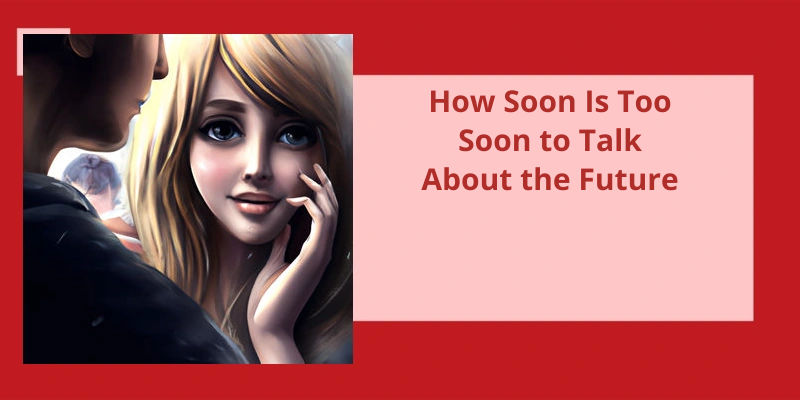The concept of time is one of the most complex and fascinating aspects of human life. From the moment we’re born, we’re constantly moving forward along with time and witnessing new things, but what exactly is considered a long time ago? The phrase "a long time ago" is ubiquitous in literature, films, and storytelling, and it typically refers to events that happened in the past, outside of common memory. Common memory being the collective historical knowledge of a particular culture or society. As we explore the concept of time further, we begin to see how relative and subjective it can be.
How Do You Say It Was a Long Time Ago?
The passage of time is a curious thing, and it’s often difficult to pin down exactly how long ago something happened. In casual conversation, phrases like “a while ago” or “long ago” can be used to refer to events that took place in the past, but without any specific timeframe in mind. This can lead to confusion or misunderstandings, as different people may interpret these phrases differently.
One way to try and clarify the meaning of these phrases is to ask for additional context or details about the event being discussed. For example, if someone says “I saw that movie a while ago,” you could follow up with questions like “How long ago was that?” or “Do you remember anything specific about the movie or when you saw it?”
Alternatively, if you’re the one using these phrases, it may be helpful to provide additional information to help others understand what you mean. For instance, instead of saying “I went to that restaurant a while ago,” you could say “I went to that restaurant about three months ago.”
Of course, even with more specific details, there will always be some level of subjectivity when it comes to interpreting timeframes.
Despite these challenges, the phrases “long ago,” “many years ago,” and “many moons ago” all generally carry a similar meaning of referring to events that took place in the distant past. These phrases are often used to add a sense of nostalgia or romanticism to a story or memory, evoking a sense of times gone by.
Whether you’re discussing events from a few hours ago or several decades in the past, finding common ground with others about what these phrases mean can go a long way in ensuring clear communication and understanding. Time may be a constant, but our perceptions of it can vary widely.
The Role of Memory and Nostalgia in How We Talk About the Past
Memory and nostalgia play a crucial role in shaping how we talk about the past by influencing our perceptions and emotions. Nostalgic emotions can color our memories and create a sense of longing for a time that may not have been as ideal as we remember it. Additionally, individual and collective memories can influence which aspects of the past are emphasized or downplayed in our discussions.
However, the concept of what’s considered a “long time ago” can vary depending on what point of reference is used. It can be a matter of decades, centuries, or even millennia. The perception of time and history can greatly affect how we interpret the phrase and the stories that follow it.
What Is Considered a Long Time Ago?
However, the exact timeline of what’s considered “a long time ago” varies depending on the context and the world in question. In some cultures, a long time ago could mean thousands of years in the past, such as the ancient civilizations of Egypt or Mesopotamia. In others, it could refer to a more recent historical event, such as the Napoleonic Wars or the American Civil War. It all depends on what events have shaped the culture and history of the audience in question.
There are also personal factors that can influence what someone considers to be a long time ago. For example, older adults may have a different perception of what “a long time ago” means compared to younger generations. This is because their life experiences have given them a wider range of historical events to draw from. Additionally, people from different parts of the world may have different cultural touchstones that shape their idea of what’s considered ancient or remote.
Ultimately, what’s considered a long time ago is a flexible concept that can vary depending on a variety of factors.
The Impact of Technology and Media on Our Perception of Time and History.
This topic explores how technology and media can influence our understanding and perception of time and history. It investigates how advancements in technology, such as smartphones and social media, can make us feel like time is passing by quicker. Additionally, it explores how the use of images and storytelling in media can shape our cultural memory and understanding of historical events.
As we look back into history, the concept of what constitutes a “long time ago” has changed. Previously, it was measured in centuries or generations, but with the rapid pace of technological advancement and societal changes in recent decades, it’s become increasingly challenging to define exactly how much time is considered a “long time ago.”
How Much Time Is a Long Time Ago?
It was a time when the world was a vastly different place. Technology hadn’t yet advanced to the point where it’s today, and the way people lived their lives was molded by different social norms.
In order to understand just how much time is considered a long time ago, one must have a grasp of history. The most important events and eras that have shaped the world we know today all took place during times that were considered a long time ago.
For instance, dinosaurs roamed the earth some 65 million years ago. This may seem like an inconceivably large span of time, but it’s just the beginning of the story.
Humans only started to emerge as a species roughly 200,000 years ago. In the scope of geological history, this is barely a blip on the radar.
Civilization as we know it, with it’s various religions, organized societies and legal systems, only emerged around 6,000 years ago. This was a time when writing began to be developed, allowing for the creation of historical records and the spread of knowledge.
The period known as the Dark Ages, which lasted from the 5th to the 15th century, saw chaos and instability throughout Europe. It was also a time of great exploration, as explorers such as Marco Polo and Christopher Columbus ventured to distant lands and brought back new knowledge and culture.
All in all, a long time ago is relative to what one is referring to. But one thing is certain: the more distance there’s between today and the event being referred to, the longer the time ago it is.
Source: What’s a long time ago?..
Moving on to the topic of time and the way we refer to events from the past, it’s important to note that there’s a bit of confusion around the phrase “long time ago.” While it’s perfectly grammatically correct to say “it was so long ago,” adding the word “time” in there makes it incorrect. Nonetheless, a variety of similar phrases can convey the same meaning and all refer to something that occured far in the past. Let’s explore this idea further.
Is Long Time Ago Correct?
When we reflect on distant memories, we often describe them as happening “a long time ago.”. This phrase is perfectly grammatically correct and widely used to convey the sense that the event occurred in the distant past. It’s used to conjure up images of a bygone era and represents a vivid depiction of times gone by.
There are, however, some who might use the phrase “long time ago” instead. This isn’t grammatically correct, as it implies the word time acts as a noun that needs an article, such as a or the. The correct phrase is simply “a long time ago”, where a acts as an indefinite article that precedes the adjective long.
However, “long time ago” is still a common phrase used by non-native English speakers who haven’t yet fully grasped the intricacies of the language. Nonetheless, native speakers of English generally understand it’s intended meaning.
It’s used to indicate that the event occurred in the distant past, but without the added emphasis on the length of time that’s passed. It’s a more casual way of describing the past and often used in everyday conversation.
The phrase “many years ago” is a more precise way of describing a past event. It places greater emphasis on the length of time that’s passed since the event occurred. It’s often used to describe events that occurred many decades ago.
Finally, the phrase “many moons ago” is an old-fashioned and poetic way of describing a past event. It’s somewhat nostalgic and is often used to convey a romanticized view of the past. It’s also worth noting that the word “moon” in this phrase is often used figuratively to mean “month”, so the phrase can also mean “many months ago”.
The correct phrase is “a long time ago”, but other similar phrases such as “long ago”, “many years ago”, and “many moons ago” all have their own subtle nuances and emphasis on the temporal distance of past events.
When we hear the phrase “it was so long ago,” it usually refers to events or occurrences that happened in the distant past. These could be things that happened in history, personal experiences, or even cultural milestones that are no longer relevant today. Regardless, something that was a long time ago typically invokes a sense of nostalgia or a desire to learn more about the past. In this article, we will explore what it means to say that something was so long ago and why it’s important to reflect on the past.
What Does It Was So Long Ago Mean?
“It was so long ago” is an expression that refers to something that took place in the distant past, normally decades or centuries ago. People usually say this phrase when trying to reminisce or recount past events that they’d experienced earlier in life or when they were alive. The idea behind this expression is to create an impression of the past being an ancient and different era, far removed from the present. This point of view helps to create a sense of nostalgia or reminiscence that helps people process emotions and feelings associated with past experiences.
Things that happened long ago are significant milestones in our collective history. They’re events that we’ve often read or heard about in textbooks, and they’ve left their marks on our culture in many ways. Some examples of significant events that occurred a long time ago include the invention of the wheel, the discovery of fire, the birth of the Roman Empire, the construction of the Pyramids of Giza, among others. These events shaped the course of human history and contributed to the development of civilization as we know it today.
Another aspect of this expression is that it allows people to reflect on their lives and see how far they’ve come. It’s an opportunity to take stock of ones achievements and experiences, recognize personal growth, and appreciate the journey. When people say “it was so long ago,” they may be reflecting on how much their lives have changed since the events theyre recounting. They also recognize that the past is gone, but the present is what matters.
It’s an expression that allows people to reflect on the past, acknowledge the changes that have occurred, and recognize the significance of past events in shaping our present. We can appreciate the past for what it was, but we must embrace the present as the only moment we’ve control over. By recognizing that some things are better left to nostalgia, we can move forward with our lives with gratitude and a renewed sense of purpose.
The Importance of History in Shaping Our Present and Future
The study of history is critical for understanding how our past has influenced our present and how it will shape our future. It helps us comprehend the complex factors that have played a role in shaping our society, and provides us with insights into the cultural, social, economic, and political issues of our time. By examining past events, we can learn valuable lessons and avoid repeating the mistakes of the past. Moreover, history offers a unique perspective on the human condition, allowing us to gain a deeper understanding of our place in the world and how we can work towards creating a better future.
Conclusion
However, in most cases, it evokes a sense of time that’s distant, ancient, and outside of common memory. While there’s no specific duration that can be used to define a long time ago, the general consensus is that it spans several centuries, with many people associating it with a period before the Feudal Era. Ultimately, the exact length of time isn’t as important as the evocative power of the phrase and the emotions it stirs in people's hearts, reminding us of our shared human history and the long journey we’ve taken to get to where we’re today.






